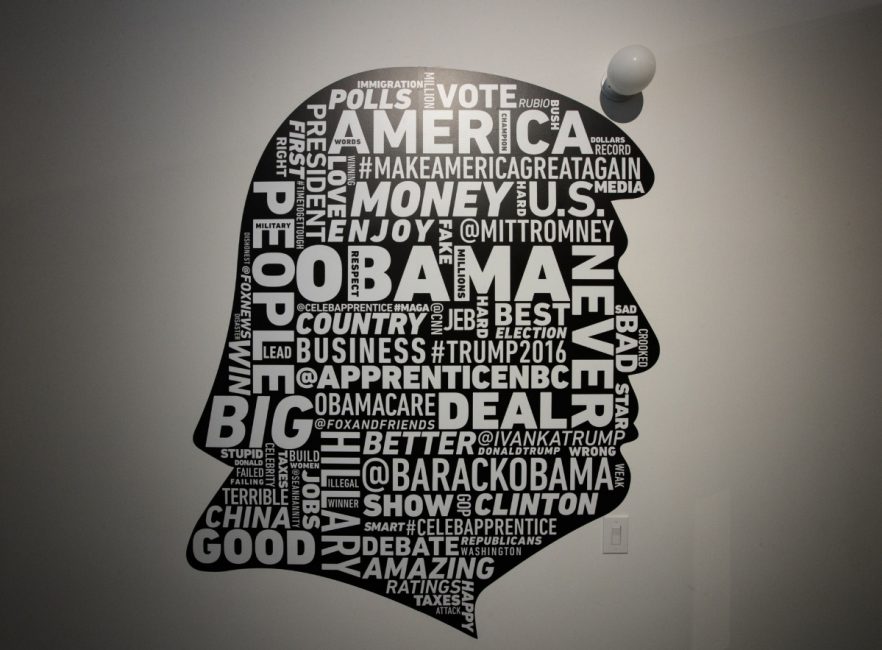Many love President Trump’s tweets — many hate them. Scott Adams is the creator of the comic strip “Dilbert,” and has a remarkable understanding of the power of the process of communications President Trump is using in his tweets. It impacted me so greatly I felt it would you too.
“As a trained hypnotist and a lifelong student of persuasion, I’m often impressed by how much “work” President Trump gets out of his tweets. Most of them are harmless retweets about whatever is going right, and they tend to be forgettable. The good ones are something entirely different, and many are gems of persuasion.
Consider this one: “With Jemele Hill at the mike, it is no wonder ESPN ratings have ‘tanked,’ in fact, tanked so badly it is the talk of the industry!”
When Mr. Trump smack-tweets a notable public critic—Ms. Hill has called the president a “white supremacist”—it violates our expectations of his office. That’s what makes it both entertaining and memorable. He often injects into his tweets what memory expert Carmen Simon calls a “little bit of wrongness” to make it hard to look away. If the wrongness alarms you, consider that for years he has adroitly operated within a narrow range of useful wrongness on Twitter without going too far. That suggests technique. In the Twitter environment, strategic wrongness is jet fuel.
Watch for Mr. Trump’s tweets to make you think past the sale, a well-known technique of persuasion. In the Jemele Hill tweet, he makes you wonder if ESPN’s ratings really are the “talk of the industry.” And in order even to consider that question, you must imagine a world in which the primary claim—that Ms. Hill is bad for the network—is true. Even if it isn’t.
Here’s another example in which the president makes you think past the sale: “People are just now starting to find out how dishonest and disgusting (FakeNews) @NBCNews is. Viewers beware. May be worse than even @CNN!” If you find yourself wondering which is worse, NBC or CNN, you are thinking past the sale that both are bad.
Here’s another. Spot the part that is past the sale: “Art Laffer just said that he doesn’t know how a Democrat could vote against the big tax cut/reform bill and live with themselves!”
When Candidate Trump said he would make Mexico pay for the wall, he was making us think past the sale. If you’re thinking about who is paying for the wall, you’ve already imagined the wall existing. And that makes it easier to convince you it should exist.
I also see the president as employing a modern version of humor. When he goes after one of his high-profile critics, his supporters laugh and reach for the popcorn. This is gonna be good! Voters who preferred Hillary Clinton are not laughing, of course. But they aren’t the audience for his tweet humor. And that makes it even funnier for his supporters. His base is in on the joke, whereas his detractors don’t even know humor is happening.
In the 1940s, humor was mostly about corny jokes with punch lines, and loads of slapstick. By the ’70s, humor evolved to be whatever the public found most inappropriate and shocking. Half the fun of watching “Saturday Night Live” in those days was waiting for the naughty parts. By the late ’90s, humor evolved into more of a reality-focused art. When you watch your favorite reality TV show, you’re probably laughing. When you read comics, you laugh hardest at the ones that speak to your personal experience.
Reality and humor have effectively merged. President Trump came to us through the reality TV world, and apparently he has a good grasp of modern humor. His critics will wince at my suggestion that his tweets are intentionally humorous, or even funny. But ask one of his followers about them. Notice the reflexive smile when you bring up the topic. They see it as weaponized humor. Likewise, they recognize Mr. Trump’s sticky nicknames, such as “Low Energy Jeb” and “Rocket Man,” as both intentionally humorous and effective.
Humor is an extraordinary tool of persuasion. Things that are funny are easier to remember, and humor creates a bond with anyone who shares the laugh. In my opinion as a professional humorist, Donald Trump is the funniest president in the history of the republic. Perhaps Abe Lincoln was second.
Again, there are no jokes of the old-fashioned punch-line variety in the president’s tweets. The humor comes from our shared reality, their inappropriateness and—for his supporters—the fun of watching their shared critics take pies in their faces.
Mr. Trump also has a knack for getting into his critics’ heads. Consider this tweet: “Why is the NFL getting massive tax breaks while at the same time disrespecting our Anthem, Flag and Country? Change tax law!” The odds of a tax law change targeted at the NFL are low. But are they zero? Once that risk is in your head, you reflexively treat it as real even if your rational brain says it isn’t.
See a similar technique in the next tweet: “Network news has become so partisan, distorted and fake that licenses must be challenged and, if appropriate, revoked. Not fair to public!” It is deeply unlikely any major network will lose its station licenses, but now the idea is in their heads. Everything I know about persuasion tells me it will nudge the networks toward friendlier coverage out of self-preservation.
If you think Mr. Trump’s tweets are nothing but thin-skinned reflex, you’re missing a great show. Historians and trained persuaders will be analyzing his extraordinary Twitter game for hundreds of years, wondering how much of it was based on training and how much was pure instinct.
Did you catch me making you think past the sale just then?”
Mr. Adams is the creator of the comic strip Dilbert and author of “Win Bigly: Persuasion in a World Where Facts Don’t Matter,” out next week from Portfolio/Penguin.

